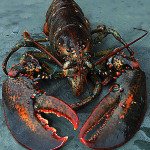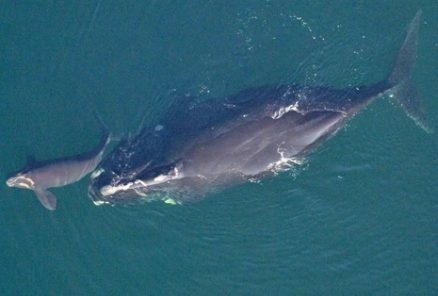Tag Archives: glass eels
Two Dominican nationals sentenced for smuggling endangered juvenile eels from Puerto Rico
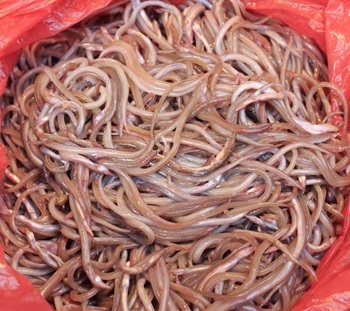 On Nov. 14, U.S. District Court Judge Aida M. Delgado-Colón sentenced Simón De la Cruz Paredes, 56, to 24 months in prison and two years of supervised release. On Thursday, Saúl Enrique José De la Cruz, 39, received the same sentence in the U.S. District Court for the District of Puerto Rico. Court documents revealed the pair spent months harvesting the juvenile eels in rivers near Levittown, Puerto Rico. The eels were kept alive using specialized oxygenation equipment while the defendants prepared a boat for the trip back to the Dominican Republic. On Feb. 21, they departed Puerto Rico with 30 kilograms of glass eels valued at $132,000, a handgun, and hundreds of rounds of ammunition. The U.S. Coast Guard intercepted the vessel about 40 miles from Puerto Rico after the men refused to comply with an order to stop. more, >>CLICK TO READ<< 09:27
On Nov. 14, U.S. District Court Judge Aida M. Delgado-Colón sentenced Simón De la Cruz Paredes, 56, to 24 months in prison and two years of supervised release. On Thursday, Saúl Enrique José De la Cruz, 39, received the same sentence in the U.S. District Court for the District of Puerto Rico. Court documents revealed the pair spent months harvesting the juvenile eels in rivers near Levittown, Puerto Rico. The eels were kept alive using specialized oxygenation equipment while the defendants prepared a boat for the trip back to the Dominican Republic. On Feb. 21, they departed Puerto Rico with 30 kilograms of glass eels valued at $132,000, a handgun, and hundreds of rounds of ammunition. The U.S. Coast Guard intercepted the vessel about 40 miles from Puerto Rico after the men refused to comply with an order to stop. more, >>CLICK TO READ<< 09:27
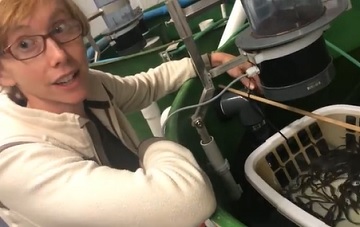
Raising baby eels. “Why not keep that value at home?”
Sushi lovers will tell you that full-grown eels, called unagi, are pretty tasty. That’s why Sara Rademaker started raising baby eels a few years ago … in her basement near the coast of Maine. “It was like dingy stones, a dirt floor and a glorified large aquarium with a couple of tanks,” she says. “And also we had butchered a pig. So that was hanging. It was quite the scene … with like an exposed light bulb.” Each spring, Rademaker has watched as local fishers netted baby eels from Maine’s clean, cold rivers and sold them to unagi-loving Asian nations. Some years, those foreign importers pay thousands of dollars per pound, each one containing about 2,500 of the toothpick-thin, transparent wrigglers often referred to as “glass eels.” >click to read<18:52

Man accused of illegally fishing for baby eels headed back to court
A former Shinnecock Indian Nation tribal member charged last year with illegally fishing for baby eels was caught as part of a larger sting operation by state conservation police who were briefing the governor’s office but not tribal leaders, state records released during his trial show. The first phase of David Taobi Silva’s trial for harvesting so-called glass eels took place Aug. 30 in Southampton Town Justice Court before Judge Gary Weber without an immediate conclusion, he said. >click to read<08:55

Indians in the Hamptons Stake Claim to a Tiny Eel With a Big Payday
Shinnecock Indians have fished the local waters here on the East End of Long Island since before European settlers first appeared in the 1600s, up through its evolution into the wealthy summer playground known as the Hamptons. So David Taobi Silva, 42, a tribal member who lives on the reservation just outside of Southampton village, says that when he harvests fish locally, he needs no commercial license from New York State’s Department of Environmental Conservation and is exempt from its strict regulations to protect fish populations. But that is not how the state sees it,,, >click to read< 20:40
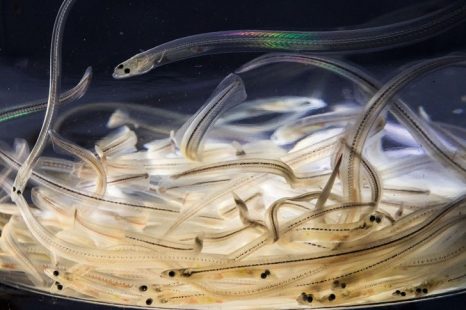
Inside the Multi-million-Dollar World of Eel Trafficking
The alleged kingpin of one of the biggest domestic wildlife smuggling operations ever to hit the East Coast is exactly where you’d expect to find him on a rainy evening in early May: firmly planted in a swivel chair at a big green metal desk inside his renovated Quonset hut on Foster Street, in Ellsworth, Maine. At this post Bill Sheldon waits day and night for fishermen to come and fill his bowl with writhing masses of baby eels. The 72-year-old fisherman wears glasses, a blue flannel shirt, jeans, duck boots, and a brown L.L. Bean baseball cap. His cell phone goes quack, quack, quack when it rings. The sign above his head reads, “Buying Glass Eels Here,” with the day’s market price: $1,250 per pound. (so much more about the fishery in this article than “trafficking”) click here to read the story 09:26
Is the Japanese eel industry on the slippery slope to extinction?
 “Eel has been loved in Japan for millennia,” Murakami says. “It’s crucial that we continue this ancient Japanese food culture.” The eating of freshwater eel — or unagi — is a culinary romance that has lasted more than 5,000 years. Indeed, eel bones have been found in shell mounds dating back to the Jomon Period, which lasted from around 10,000 B.C. to 200 B.C.,, Consequently, the majority of eel that makes it onto dining tables nationwide has been imported from China and Taiwan since the 1990s. According to the 2015 fisheries ministry survey, eel imports now account for approximately 60 percent of the domestic eel supply, with a large quantity of the fish being processed into kabayaki in China and shipped to Japan in a ready-to-cook form. According to another survey released this month by the fisheries ministry, the market price of baby eel — also known as elvers or glass eels — is currently ¥1,820,000 ($17,142 usd) per kilogram. By contrast, the market price of baby eel was ¥160,000 per kilogram In 2003, less than 10 percent of the existing price. Interesting article, read the rest here 17:29
“Eel has been loved in Japan for millennia,” Murakami says. “It’s crucial that we continue this ancient Japanese food culture.” The eating of freshwater eel — or unagi — is a culinary romance that has lasted more than 5,000 years. Indeed, eel bones have been found in shell mounds dating back to the Jomon Period, which lasted from around 10,000 B.C. to 200 B.C.,, Consequently, the majority of eel that makes it onto dining tables nationwide has been imported from China and Taiwan since the 1990s. According to the 2015 fisheries ministry survey, eel imports now account for approximately 60 percent of the domestic eel supply, with a large quantity of the fish being processed into kabayaki in China and shipped to Japan in a ready-to-cook form. According to another survey released this month by the fisheries ministry, the market price of baby eel — also known as elvers or glass eels — is currently ¥1,820,000 ($17,142 usd) per kilogram. By contrast, the market price of baby eel was ¥160,000 per kilogram In 2003, less than 10 percent of the existing price. Interesting article, read the rest here 17:29
Asian demand, low supply set record price on Maine baby eels
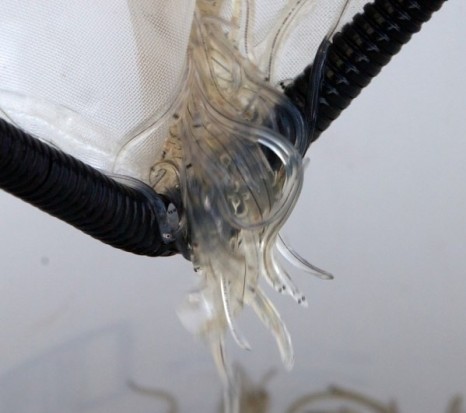 Prices for tiny glass eels caught in river inlets along the Maine coast soared to record levels this year because a slow season resulted in reduced catch, fishermen and dealers say. The baby eels called elvers sold for $2,500 or more per pound at times this season due to low supply, fishermen and dealers say, beating the old record of $1,868.73 in 2012. This year’s average price, which the state has not yet calculated, seems sure to dwarf last year’s and possibly eclipse 2012, fishermen said. Read the rest here 12:50
Prices for tiny glass eels caught in river inlets along the Maine coast soared to record levels this year because a slow season resulted in reduced catch, fishermen and dealers say. The baby eels called elvers sold for $2,500 or more per pound at times this season due to low supply, fishermen and dealers say, beating the old record of $1,868.73 in 2012. This year’s average price, which the state has not yet calculated, seems sure to dwarf last year’s and possibly eclipse 2012, fishermen said. Read the rest here 12:50
Maine: Slow start to elver season means high price for baby eels
 Maine’s baby eel season is off to a slow start, causing prices to balloon back to historic levels as fishermen wait for waterways to finish thawing. Elvers, also called , are sold overseas as seed stock for Asian aquaculture companies that raise them to maturity and sell them as food. Maine fishermen are by far the largest supplier of elvers in the U.S. Some end up back in America in restaurants as sushi. Read the rest here 14:50
Maine’s baby eel season is off to a slow start, causing prices to balloon back to historic levels as fishermen wait for waterways to finish thawing. Elvers, also called , are sold overseas as seed stock for Asian aquaculture companies that raise them to maturity and sell them as food. Maine fishermen are by far the largest supplier of elvers in the U.S. Some end up back in America in restaurants as sushi. Read the rest here 14:50

































